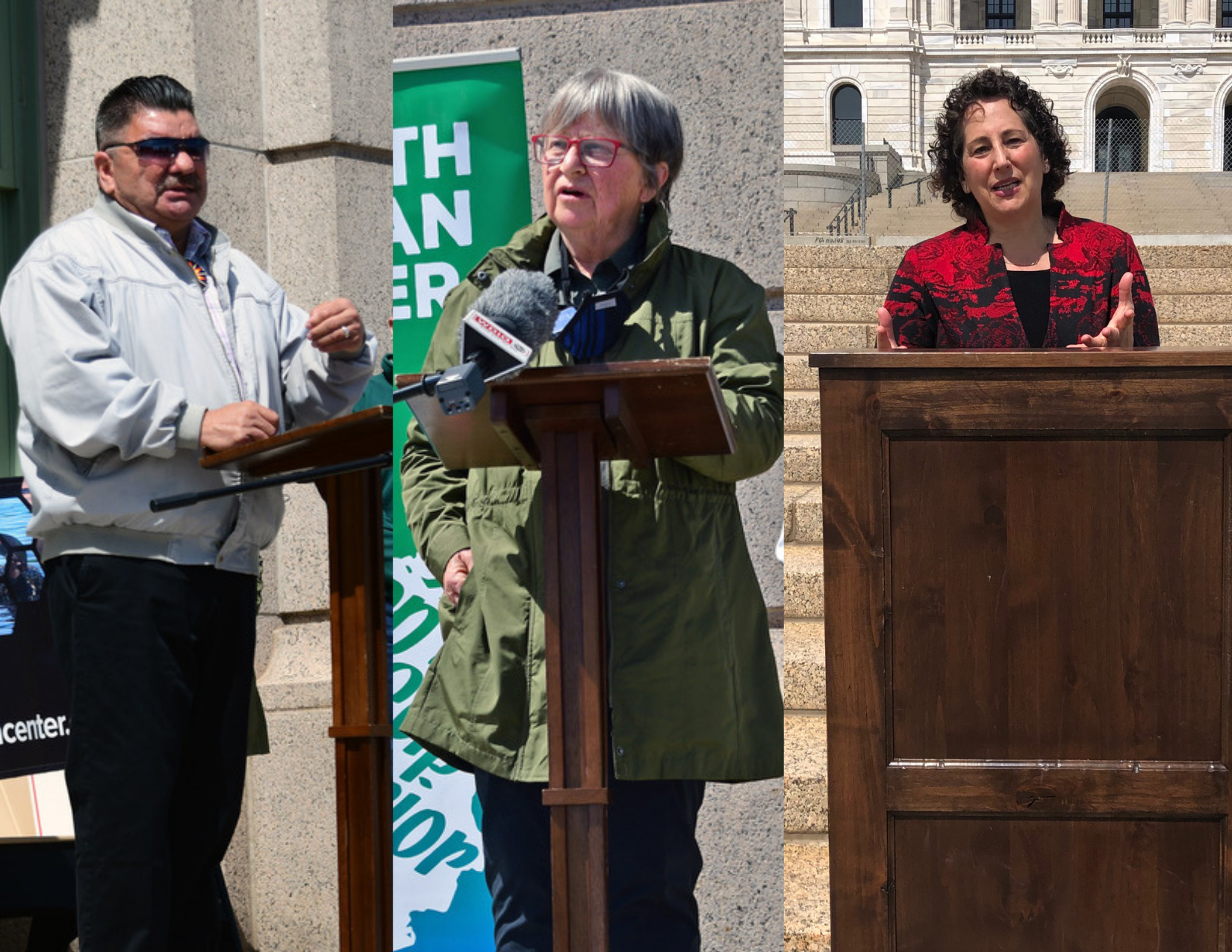PolyMet Permit to Mine & Dam Safety Permits: Appeals
What is the PolyMet permit to mine and dam safety permit appeals?
The Minnesota Department of Natural Resources (DNR) approved the Permit to Mine and Dam Safety Permits for tailings waste and hydrometallurgical waste for the PolyMet sulfide mine project on November 1, 2018. At the same time, the DNR denied petitions by WaterLegacy and our allies for a contested case hearing before an impartial administrative law judge.
On December 3, 2019, WaterLegacy and our allies appealed both the PolyMet Permit to Mine and the PolyMet Dam Safety Permits.
On appeal, WaterLegacy requested reversal of the permits and that the DNR be ordered to conduct a contested case hearing on critical issues related to dam safety, acid mine drainage, and failure to protect downstream communities and taxpayers by providing adequate financial assurance and requiring that Glencore be on the permits.
What’s the current status of the appeal?
WaterLegacy, our environmental allies, and the Fond du Lac Band achieved a stunning victory on January 13, 2020, when the Minnesota Court of Appeals reversed both the PolyMet Permit to Mine and Dam Safety Permits and ordered DNR to conduct a contested case hearing on whether the permits should be issued to PolyMet.
PolyMet and the DNR then petitioned for review by the Minnesota Supreme Court. Because the PolyMet Permit to Mine and Dam Safety Permits were stayed by the Court in October 2019 and then reversed, PolyMet cannot begin construction of its sulfide mine project while court review continues.
In a rare victory for environmental groups challenging an agency decision, on April 28, 2021, the Minnesota Supreme Court reversed the PolyMet permit to mine and ordered a contested case hearing.

WaterLegacy Board Member Ricky DeFoe, Board President Janet Keough, and Advocacy Director and Counsel Paula Maccabee speak at Duluth and St. Paul PolyMet Supreme Court Decision press conferences on April 28, 2021.
- The Minnesota Supreme Court ruled it was illegal for the DNR to issue PolyMet a “forever” permit without a term limit. This is important because setting a fixed term will require the DNR to grapple with unsolved issues for the PolyMet tailings basin, including long-term toxic pollution and failure to develop a closure and reclamation plan.
- The Supreme Court also ordered DNR to hold a contested case hearing on whether PolyMet’s scheme to control acid mine drainage with bentonite would keep pollution contained.
- The Court did not reverse the dam safety permits, and they will be evaluated after the DNR reissues the PolyMet permit to mine.
READ the Minnesota Supreme Court April 28, 2021 decision on the PolyMet permit to mine.
“In layman’s terms, the PolyMet permit to mine just went boom. It was overturned and it starts over. What that means is the DNR is going to start from scratch,” said Paula Maccabee, an attorney for WaterLegacy, one of the groups fighting the project.
Video: PolyMet Supreme Court Decision Press Conference
Excerpts from the PolyMet Permit to Mine Supreme Court Decision Press Conference at the Minnesota Capitol on April 28, 2021.
Video: PolyMet Permit to Mine Struck Down
The Court of Appeals’ January 13, 2020 ruling reversed DNR’s decisions approving the PolyMet Permit to Mine and Dam Safety Permit and denying a contested case. The Court held:
WL [WaterLegacy] has provided substantial evidence—in the form of an inundation study conducted by PolyMet—that its members’ properties will be affected by the risk of dam failure.
DNR erred by failing to recognize its obligation to independently evaluate whether the statutory criteria for a contested-case hearing were met.
[T] the statutory criteria for holding a contested-case hearing are met when there is probative, competent, and conflicting evidence on a material fact issue . . . Nothing in the statutory language grants the DNR the unfettered discretion it seeks to employ.
The Court of Appeals identified specific issues that must be included in a contested case hearing including: tailings dam upstream construction, seepage capture and use of bentonite to control pollution, alternatives to wet closure of the tailings basin, financial assurance, and the need to put PolyMet’s majority owner Glencore on the Permit to Mine.
